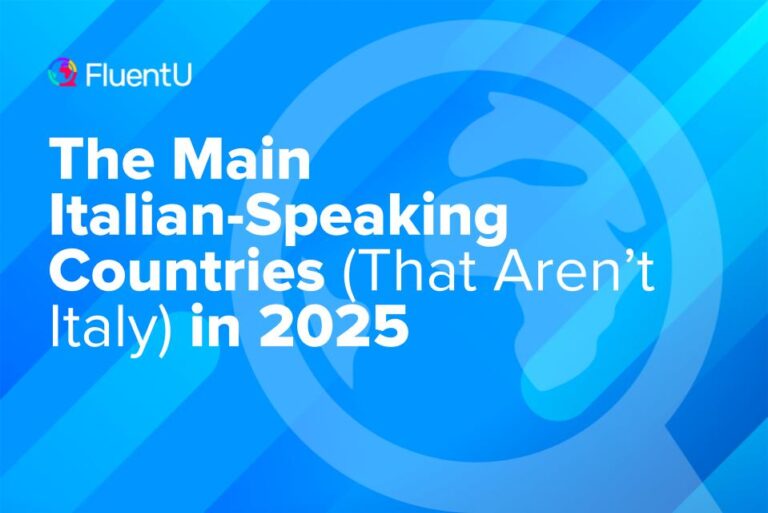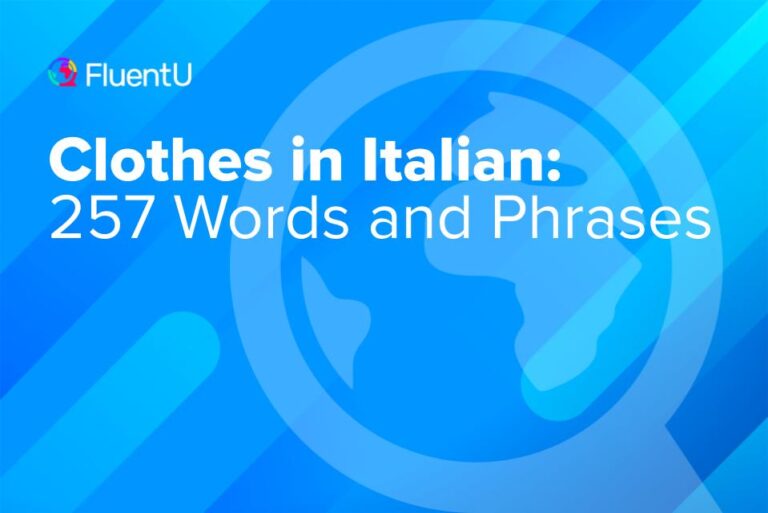Congratulations in Italian: 12 Key Phrases
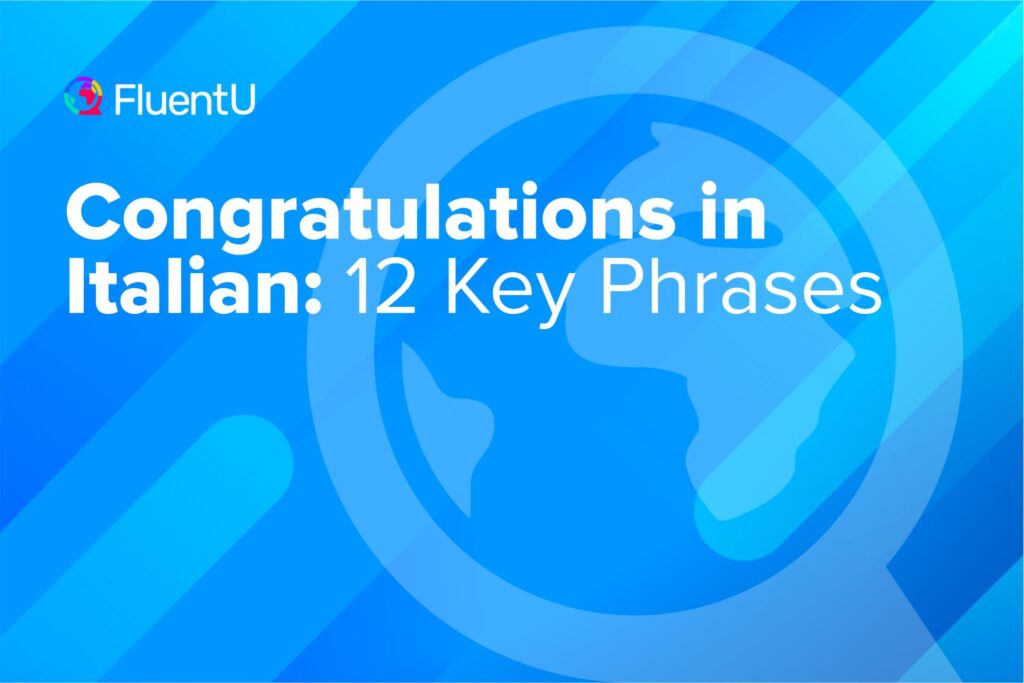
While complimenti is the go-to phrase for “congratulations” in Italian, there are actually other ways to wish others well in the language.
How do you know which saying is best for your situation? Let me break down each word and phrase for you. I’ll also include examples of how to use these in conversation.
Download: This blog post is available as a convenient and portable PDF that you can take anywhere. Click here to get a copy. (Download)
Basic Ways to Say Congratulations in Italian
To begin, we’ll discuss several standard ways to congratulate someone in Italian.
Complimenti! — Congratulations/Well done
Complimenti is the most common way to say congratulations in Italian.
It literally translates to “compliments” and lets you acknowledge what the other speaker has achieved. Because complimenti is such a versatile saying, you can use it to congratulate someone on anything from a wedding to a job promotion.
Additionally, Italians use complimenti to convey a sense of appreciation towards the other person. Whether you’re complimenting your friend’s new outfit or their English speaking abilities, you can use complimenti to let them know that their efforts didn’t go unrecognized.
Here are some examples of how to use complimenti in Italian conversation:
Complimenti per la laurea!
(Congratulations on your graduation!)
Complimenti, tu canti molto bene.
(Amazing, you sing very well!)
Bravo! / Brava! — Good job
No matter how well you know Italian, you’re probably familiar with the common saying, bravo/a.
This word is even more versatile than complimenti and can be used in countless situations. Not only is bravo/a completely suitable for special occasions, it’s also a good word to use when you want to let someone know they’ve done a great job. For example, you might say bravo/a to an English learner after they successfully string together a complex sentence in English.
Complimenti, on the other hand, would only be appropriate in that context if you followed it with an expression of praise. For example:
Complimenti, parli molto bene l’inglese!
(Wow, you speak English very well!)
If you wish to congratulate someone by telling them bravo/a, it’s sufficient to use the word all on its own. Remember to say bravo if you’re addressing a male speaker and brava if you’re addressing a female speaker.
Congratulazioni! — Congratulations (for official events)
Unlike the previous two sayings, congratulazioni is considered a more formal way to express congratulations in Italian.
It’s worth noting that congratulazioni is more commonly seen in written language as opposed to everyday speech. However, if you wish to congratulate someone in a more official manner, congratulazioni is an appropriate choice.
These example sentences illustrate how to use congratulazioni properly:
Congratulazioni per il vostro matrimonio!
(Congratulations on your wedding!)
Congratulazioni per la promozione di lavoro!
(Congratulations on the job promotion!)
Felicitazioni! — Congratulations (very formal)
Felicitazioni derives from the Italian word felicità , which means “happiness.”
When you’re eager to express your joy about a happy occasion, you can use felicitazioni to offer someone your heartfelt congratulations. In fact, Italians usually just use it for weddings, births or similar celebrations.
Felicitazioni per la nascita di vostro figlio!
(Congratulations on the birth of your son!)
I recommend that you learn these expressions in context so that you’ll always know which situations call for which congratulations.
You can keep an ear out for these phrases in your favorite Italian TV show or try searching for them on a language learning program like FluentU.
FluentU takes authentic videos—like music videos, movie trailers, news and inspiring talks—and turns them into personalized language learning lessons.
You can try FluentU for free for 2 weeks. Check out the website or download the iOS app or Android app.
P.S. Click here to take advantage of our current sale! (Expires at the end of this month.)
Italian Well Wishes for the Future
New beginnings are the perfect opportunity to send someone your congratulations in Italian.
Here are some specific phrases you can use to congratulate someone as they embark on the next chapter in their life.
Tanta felicità! — Lots of happiness
Tanta felicità can be applied to a number of different situations.
Whether you’re attending a wedding or a graduation ceremony, you can use this phrase to let the person know you wish them plenty of happiness in their future. It’s sure to help lift everyone’s spirits at the event.
Cento di questi giorni! — Many happy returns
This phrase literally translates to “a hundred of these days.”
You’ll often use this when celebrating a birthday. For example, you might propose a toast to the guest of honor and say “Cento di questi giorni!” This lets them know that you hope they have plenty more days filled with joy and good fortune.
Auguri! — Well wishes
Auguri is heard throughout Italy in a number of different scenarios. The most common usage of this word is to wish someone all the best.
You may also hear Italians using auguri when wishing someone a happy birthday or celebrating holidays such as Christmas, Easter and New Year’s.
While it isn’t a direct translation for “congratulations,” it’s still a great way to acknowledge and celebrate happy occasions in others’ lives.
For example:
Tanti auguri a te!
(Happy birthday to you!)
Auguri di buone feste!
(Happy holidays!)
Auguri per la gravidanza!
(I wish you all the best with your pregnancy!)
Auguroni! — Well wishes (more emphatic)
You might notice that auguroni is very similar to auguri.
That’s because these two words essentially have the same meaning, but auguroni is more emphatic than auguri. If you’re particularly excited about a certain event, you can use auguroni to let the other person know that you want the absolute best for them.
Here are a few examples:
Auguroni di Buon Natale a tutti!
(Best wishes for a Merry Christmas to you all!)
Auguroni di buon compleanno, Giulia!
(Happy, happy birthday, Giulia!)
Congratulations in Italian for Specific Occasions
Certain special moments—like weddings, engagements and birthdays—have dedicated phrases. If you want to congratulate a happy couple, or a birthday boy or girl, you can easily reach for the following phrases and make your joy known:
Evviva gli sposi! — Long live the bride and groom
This phrase is considered the standard way to say congratulations to the bride and/or groom at an Italian wedding.
It’s the perfect way to send the couple your wishes for a long and happy life together.
Tanti auguri per una vita felice insieme! — Many wishes for a happy life together
If a couple you know has just announced that they’re engaged, you can tell them tanti auguri per una vita felice insieme.
This phrase is also a great way to express congratulations to a recently married couple.
Buon anniversario! — Happy anniversary
As you may have guessed, buon anniversario is the phrase Italians use to wish others a happy anniversary.
It’s a simple phrase that you can use in both formal and informal settings. The next time you want to wish your colleagues or close friends a happy anniversary, you can’t go wrong with a simple buon anniversario!
Buon compleanno! — Happy birthday
What better way to make someone’s special day even more special than to wish them a happy birthday?
In Italian, you can accomplish this by telling them buon compleanno. If you’re feeling extra festive, you can even sing the Italian birthday song, “Tanti auguri a te” (happy birthday to you)!
Life is full of moments to celebrate and offer someone your congratulations.
After learning these common ways to say congratulations in Italian, you’ll be ready to express your happiness for others’ accomplishments, whether it’s an engagement, a graduation ceremony or anything in between.
Download: This blog post is available as a convenient and portable PDF that you can take anywhere. Click here to get a copy. (Download)
And One More Thing...
If you're as busy as most of us, you don't always have time for lengthy language lessons. The solution? FluentU!
Learn Italian with funny commericals, documentary excerpts and web series, as you can see here:
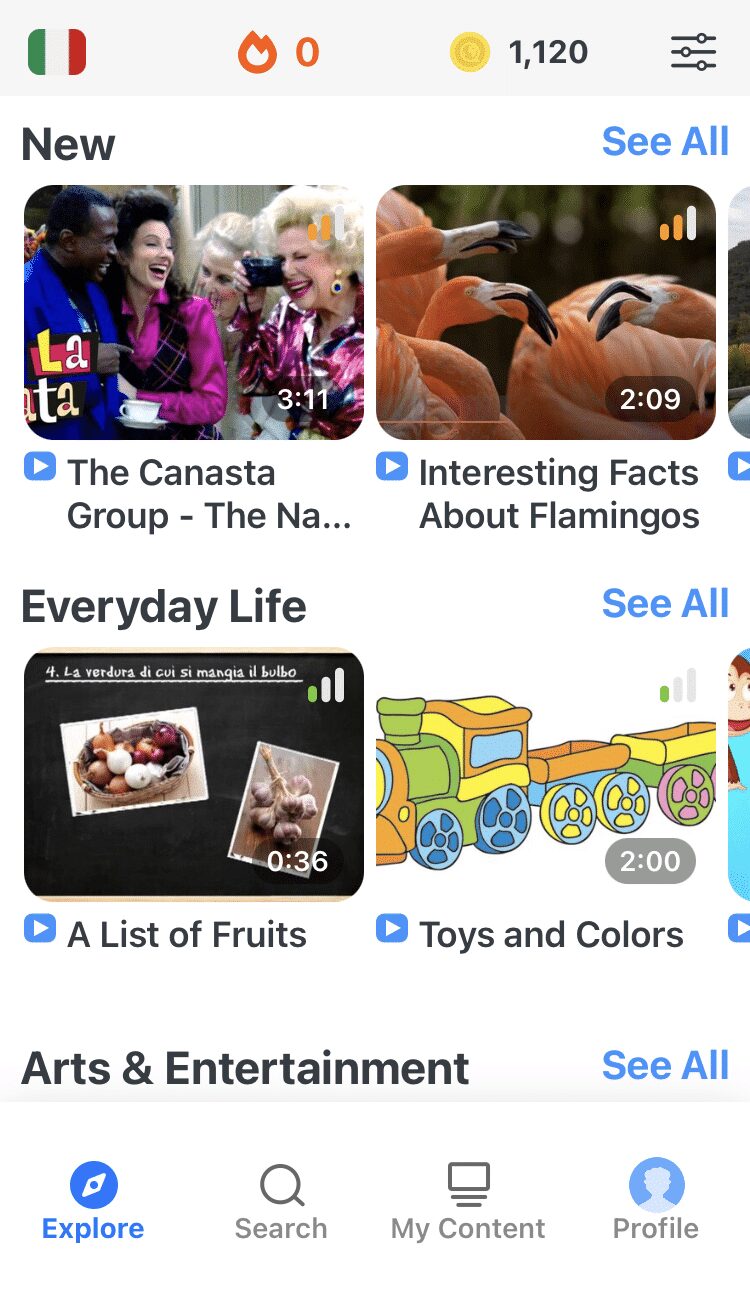
FluentU helps you get comfortable with everyday Italian by combining all the benefits of complete immersion and native-level conversations with interactive subtitles. Tap on any word to instantly see an image, in-context definition, example sentences and other videos in which the word is used.
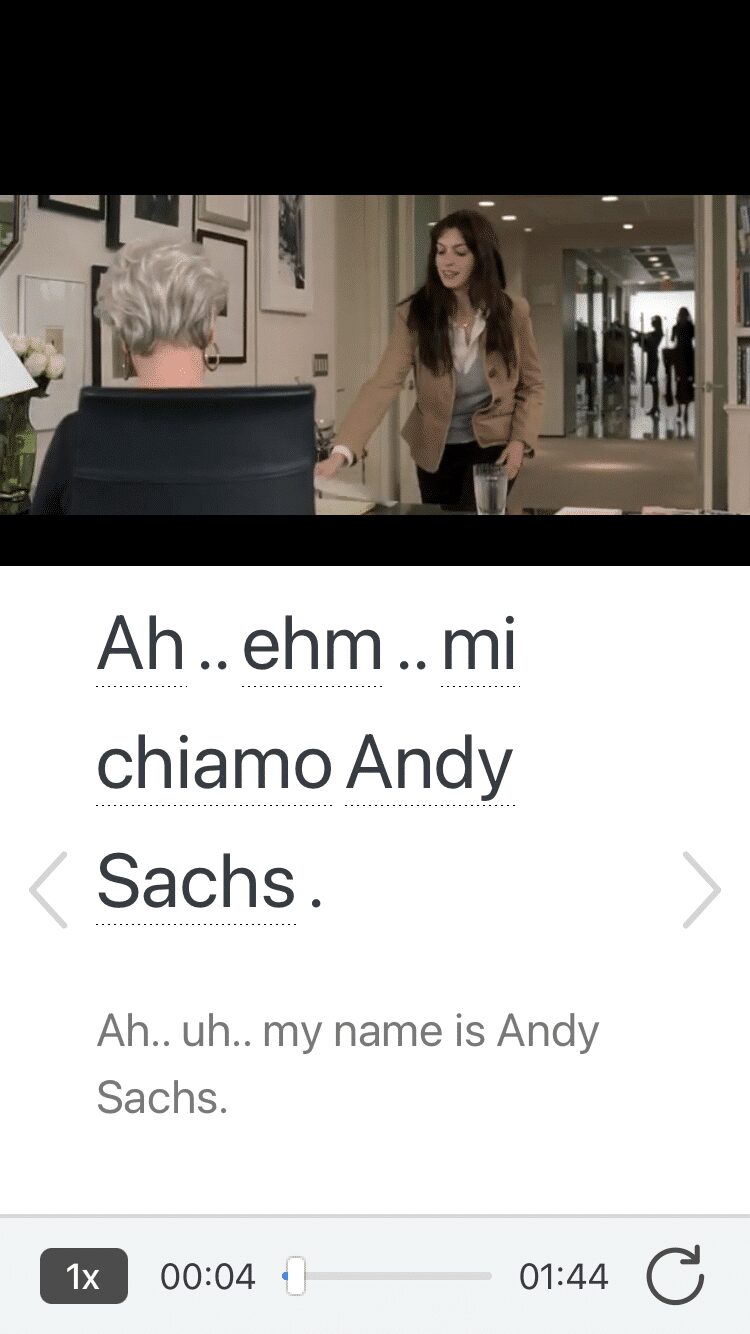
Access a complete interactive transcript of every video under the Dialogue tab, and review words and phrases with convenient audio clips under Vocab.
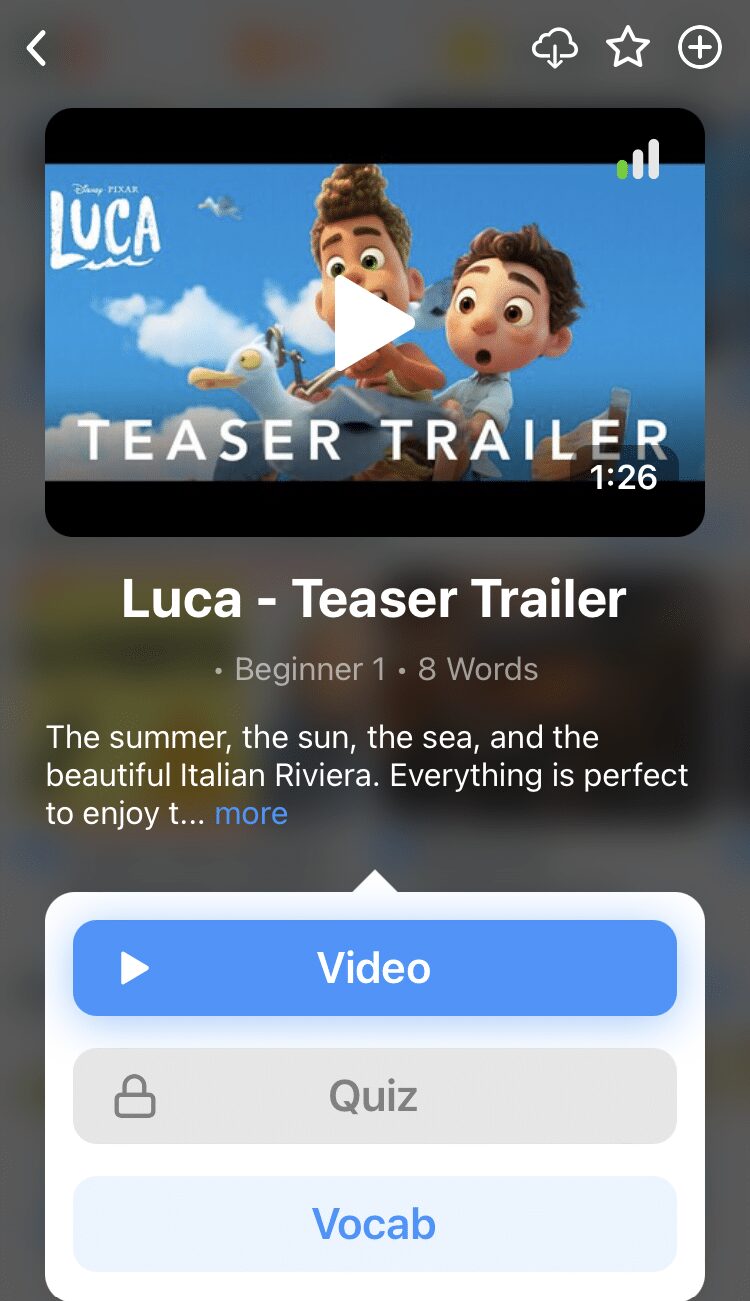
Once you've watched a video, you can use FluentU's quizzes to actively practice all the vocabulary in that video. Swipe left or right to see more examples of the word you’re on.
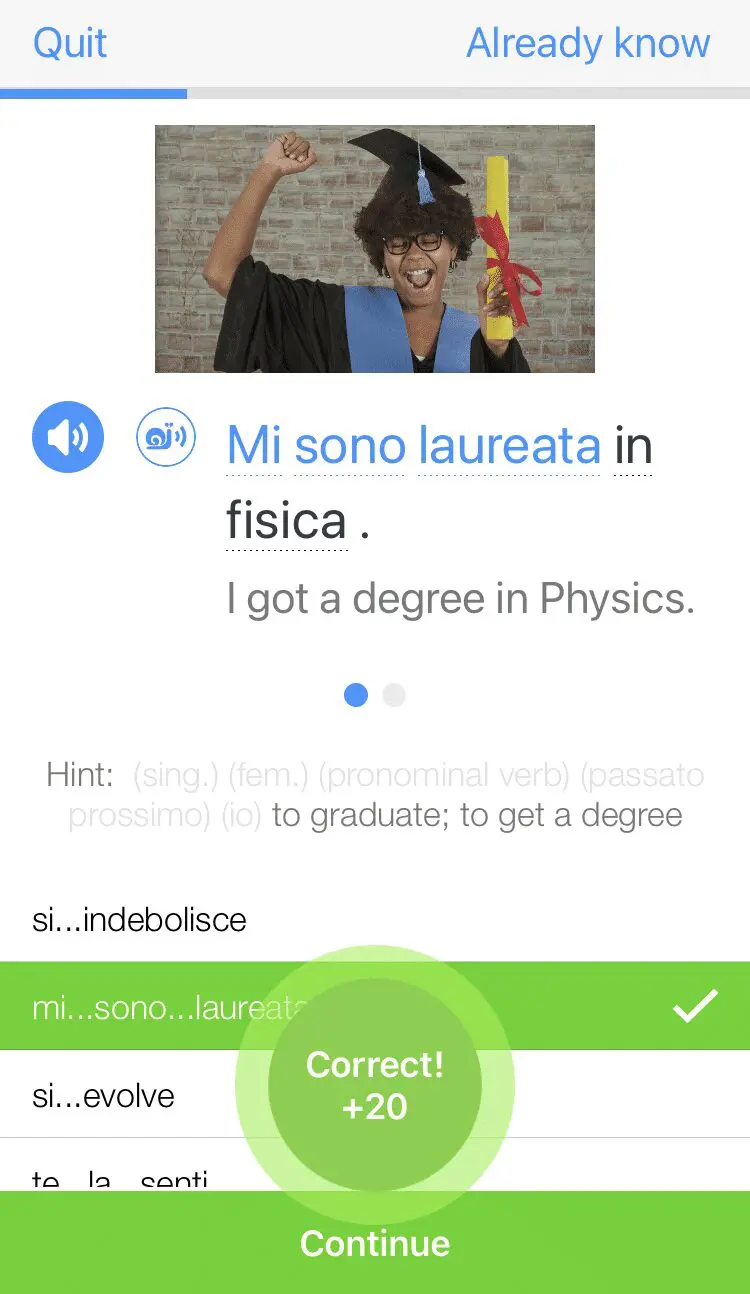
FluentU will even keep track of all the Italian words you’re learning, and give you extra practice with difficult words. Plus, it'll tell you exactly when it's time for review. Now that's a 100% personalized experience!
The best part? You can try FluentU for free with a trial.
Start using the FluentU website on your computer or tablet or, better yet, download the FluentU app from the iTunes or Google Play store. Click here to take advantage of our current sale! (Expires at the end of this month.)

